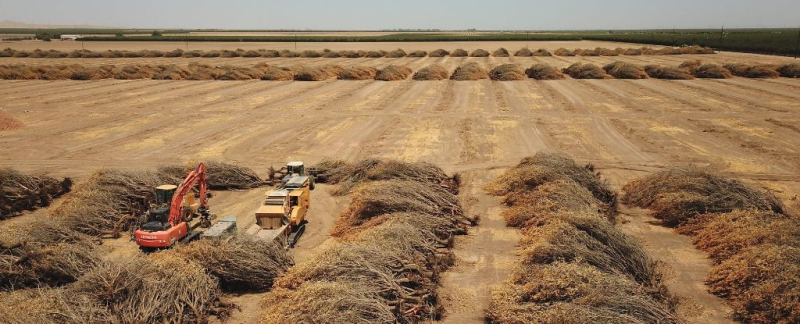- From DUCSU to JUCSU, Shibir Extends Its Winning Streak |
- Dhaka's air quality in 'moderate' range on Saturday morning |
- Deadly Floods Displace Over 100,000 in South Sudan |
- Nepal has first woman Prime Minister as March elections set |
- 50 Killed as Israel Intensifies Strikes on Gaza City |
Continents Drying Faster Than Ice Melts, Study Reveals

Dead almond trees after 2021 California drought.
Freshwater is vanishing across the globe, and a new study warns that Earth’s continents are drying at an unprecedented rate — now contributing more to sea level rise than melting ice sheets.
The research team, led by Earth system scientist Hrishikesh Chandanpurkar of FLAME University in India, analyzed over two decades of satellite data from NASA. They found that since 2002, land areas excluding Greenland and Antarctica have been losing water at alarming rates.
“Continental regions are drying at a pace never seen before,” the authors noted, estimating that the area affected expands each year by nearly twice the size of California.
Humans are driving much of this disruption through greenhouse gas emissions, diversion of waterways, and over-extraction of groundwater. While some regions are getting wetter, the imbalance is stark: dry regions are drying out faster than wet regions are gaining water.
This drying trend is impacting lakes, rivers, and underground aquifers — with 75 percent of the world’s population living in countries where water loss is accelerating. Much of this freshwater is flowing into the oceans, fueling rising sea levels.
High-latitude areas like Canada and Russia are seeing major losses linked to melting permafrost, while in other regions, such as Central Asia and California’s Central Valley, intensive groundwater pumping for agriculture is the main culprit.
Extreme droughts in Europe and Central America have also worsened the crisis. The researchers warn that such events will become more frequent as climate change intensifies.
“Groundwater overuse is now the biggest driver of terrestrial water loss,” the study states. “Protecting these reserves is essential in a warming world.”
The authors urge stronger regional and global action to develop sustainable water management before shortages reach catastrophic levels.

